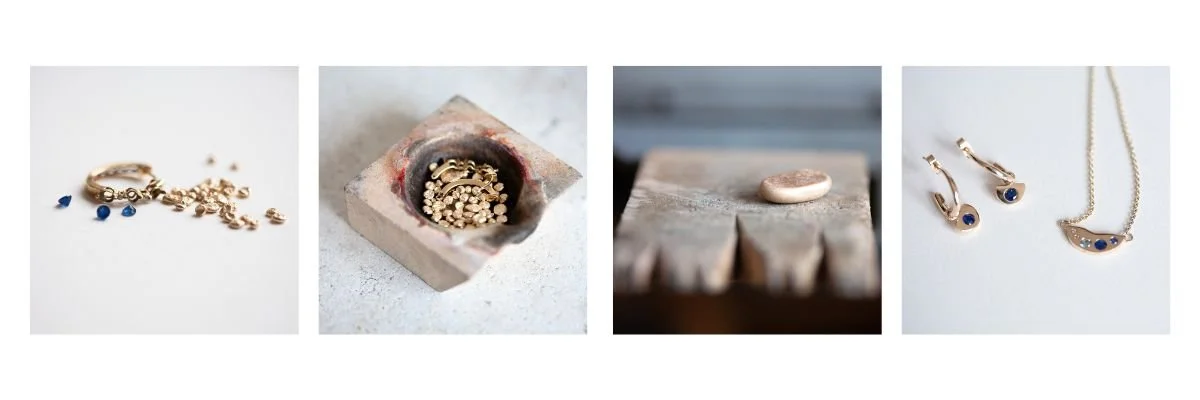Crafting A Sustainable Future
As crafters and makers, we have an opportunity, and obligation, to make a positive impact on the environment when we make our work by incorporating sustainable practices. From sourcing materials responsibly to minimising waste by recycling, there are countless ways for us as makers to work sustainably and honour the environment from which many of us find inspiration.
By making conscious choices about the materials we use and the way we produce our products, we can help reduce our own environmental impact and protect natural resources. Our customers are also becoming increasingly aware of environmental issues and are actively seeking out products that align with their values. So by adopting sustainable practices, we as makers can attract environmentally-conscious customers who are willing to support businesses that prioritise sustainability as well as beautiful handmade work.
The benefits of sustainability extend beyond just environmental – they also have tangible advantages for both us as makers and our customers. For makers, incorporating sustainable practices can lead to cost savings in the long run as well. By reducing waste and optimising resource usage, makers can lower their production costs and increase profitability. For example, are you recycling and reusing your scraps, whether that’s metals, fabrics, clay, wax, or wood? Can you re-work your scrap into new usable material? Re-using or re-purposing packaging?
Are you choosing to use ethically sourced or environmentally friendly supplies? Do the suppliers you use have an environmental policy? Don’t be afraid to question your suppliers about their supply chains and ethical values. Together as handmade artisans, crafters and makers we can have a positive impact both on the natural world that inspires us but also on the people and communities that provide the materials we use.
For our customers, choosing products from eco-conscious makers offers peace of mind. And if you talk openly about the way you work and your sustainable practices this builds trust as well, knowing that their purchase is aligned with their values. Sustainable products are often perceived as higher quality and more ethical, making them more desirable to conscious consumers, and with your genuine story behind them this can make for a winning combination.
Employing more sustainable and eco-conscious practices in your work is always something you can work on, whether it’s recycling more of your materials and setting up a more environmentally friendly workspace or studio, to speaking openly with your suppliers or sourcing new suppliers.
By embracing sustainability in your craft, you're not only making a positive impact on the environment – you're also building a more ethical and resilient business. As makers, we have the power to create change and lead by example in our communities. Let's commit to crafting a sustainable future, one that’s ethical and environmentally conscious.


